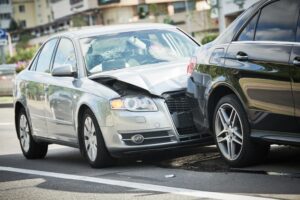
If you have been in a car accident caused by another driver’s actions, you may consider filing a personal injury lawsuit. This is an important step in seeking compensation. However, the driver at fault may say they experienced a “sudden emergency” that led to the collision.
An Atlanta car accident lawyer can help you understand Georgia’s sudden emergency doctrine and why it is important if you plan to pursue an injury claim.
What Is the Sudden Emergency Doctrine in Georgia?
The sudden emergency doctrine is a legal principle in Georgia that can excuse a driver’s actions if certain conditions are met. It states that a person confronted with a sudden or unexpected situation calling for immediate action is not expected to receive the same judgment and care expected otherwise.
The doctrine recognizes that all drivers will react differently when faced with a sudden emergency. If the situation was not caused by the driver’s negligence and their response was reasonable, they may be absolved of liability for any resulting accident.
Get the strong arm
Basic Requirements
For the sudden emergency doctrine to potentially apply to a case, the driver must prove:
- They did not have time for debate and deliberation before acting
- The emergency was unexpected and not caused by their actions
- Their course of action was reasonable under the circumstance
The emergency cannot be one that the driver should have reasonably anticipated. For example, if a car suddenly swerves in front of you on the highway, that would qualify as a sudden emergency. A traffic jam during rush hour would not qualify.
The Defendant Needs to Provide Proof
The defendant driver needs to prove a sudden emergency existed. As the plaintiff, you do not have to disprove the claims of a sudden emergency. The defendant must convince the court that each required element of the doctrine is satisfied to apply.
Just stating that you have a sudden emergency does not work without evidence and persuasive legal arguments.
What Qualifies as a Sudden Emergency?
Some of the common scenarios that Georgia courts will consider as a sudden emergency are:
- An object falling onto the road, such as tree branches or debris in the road.
- Pedestrians or children suddenly running or walking into the road
- A mechanical failure or tire blowout
- Another driver unexpectedly swerved into oncoming traffic
- A deer jumps onto the road, and you cannot move or stop quickly enough
- Slipper road conditions because of a recent storm
- Loses consciousness
Assessing the Driver’s Reaction
The court does not automatically accept a defendant’s sudden emergency claim at face value. Instead, their response will receive scrutiny to evaluate if it was reasonable under the specific circumstances. Some of the important factors for this examination include:
- Were other safer actions available instead of the chosen response? The court will determine if there are alternative options.
- How much time did the driver have to react to the emergency? Were they following too closely? Less time suggests a more instinctual response.
- What were the road and weather conditions at the time of the emergency? Poor conditions can influence the chosen response.
- How experienced and skilled was the driver? Inexperience can explain the chosen actions.
- How was the visibility on that day and time? If there was poor visibility, this could support the defendant’s actions.
Even if the defendant has a valid emergency, negligent driving actions could create liability.
Having a Sudden Emergency Does Not Mean There Is No Liability
Just because a defendant claims a sudden emergency does not mean that will get away with the liability automatically. The court has to listen to both sides. Next, they must objectively assess the evidence before deciding if the doctrine truly applies. The defendant still owes a general duty of reasonable care when driving.
The plaintiff’s personal injury lawyer in Georgia can argue that the driver did not satisfy the doctrine’s required elements. For example, the attorney could show facts and evidence showing the foreseeable hazard.
A scenario would be that the defendant driver claims they swerved suddenly when a deer jumped out onto the road. However, the plaintiff’s attorney demonstrates the incident occurred near a wooded area with deer crossing signs posted. The lawyer argues the deer hazard was foreseeable, and the defendant should have driven more cautiously and reduced speed upon seeing the warning signs. This could show the sudden emergency may have been prevented with reasonable care.
The Impacts of the Emergency Doctrine on Lawsuits and Settlements
The sudden emergency doctrine can impact the pre-trial settlements and potential lawsuits. Defendants may invoke it early, hoping to reduce liability and settlement amounts. The plaintiff’s personal injury attorney in Georgia can counter these defense tactics through thorough investigation and challenging questionable claims.
If the settlement fails, the defendant would maintain the defense at trial while the plaintiff’s lawyer presents counterarguments and evidence to defeat the doctrine’s application. The jury ultimately decides if it applies based on the facts presented in court.
Overcome the Sudden Emergency Defense
While the sudden emergency doctrine has some challenges, it does not prevent an injured plaintiff from getting fair compensation. There should be some strategies to overcome the defense. Some of the strategies are:
- Contesting the claim of a valid emergency
- Providing evidence that shows the defendant driver was being negligent
- Work with reconstruction experts to prove that the defendant’s claim is not accurate
- Demonstrate alternative and safer actions the defendant could have taken.
Our Team is Ready to Help Prove Your Side of Your Personal Injury Case
Working with a Georgia personal injury attorney is important if you know there was no way the defendant had no safer option to avoid a collision. While the defendant can be careful with presenting their case to make it look like it was a sudden emergency, our team can help you with strategic ways to prove the other driver had alternative options.
You do not deserve to get stuck with medical bills and the cost of damage for an accident you did not cause. Contact us today to start with a free consultation. We will help you show the evidence that proves the other driver was negligible.
(404) 400-4000 or complete a Free Case Evaluation form





